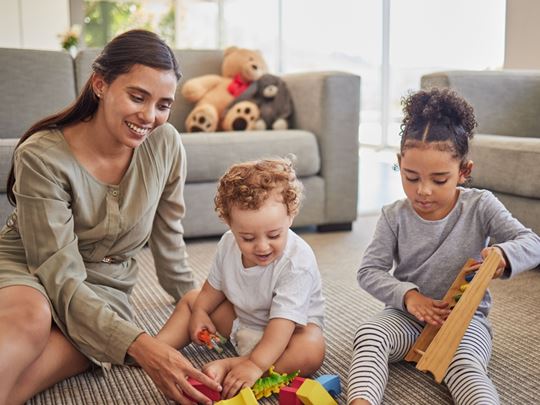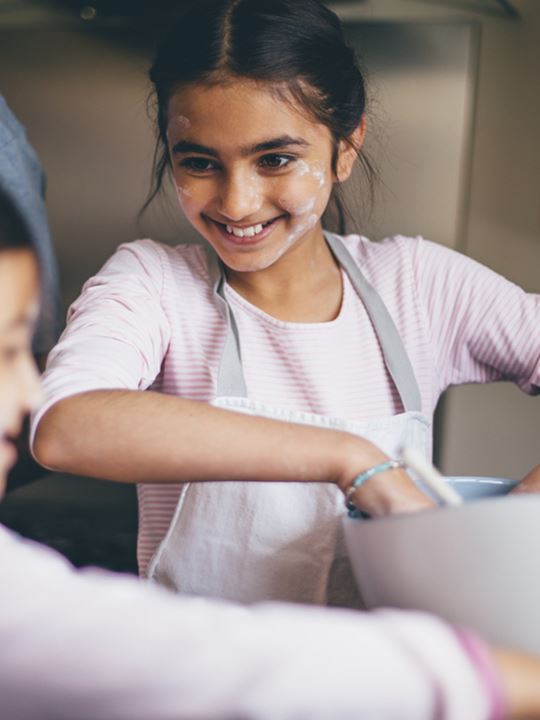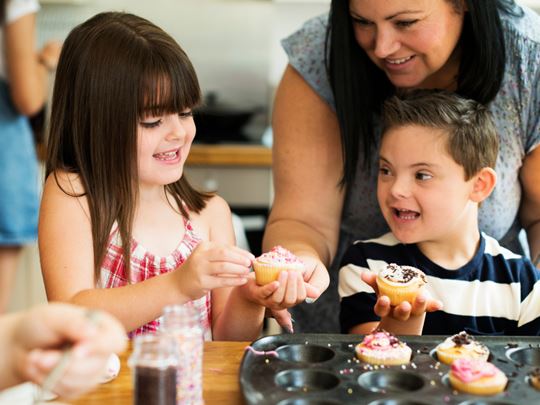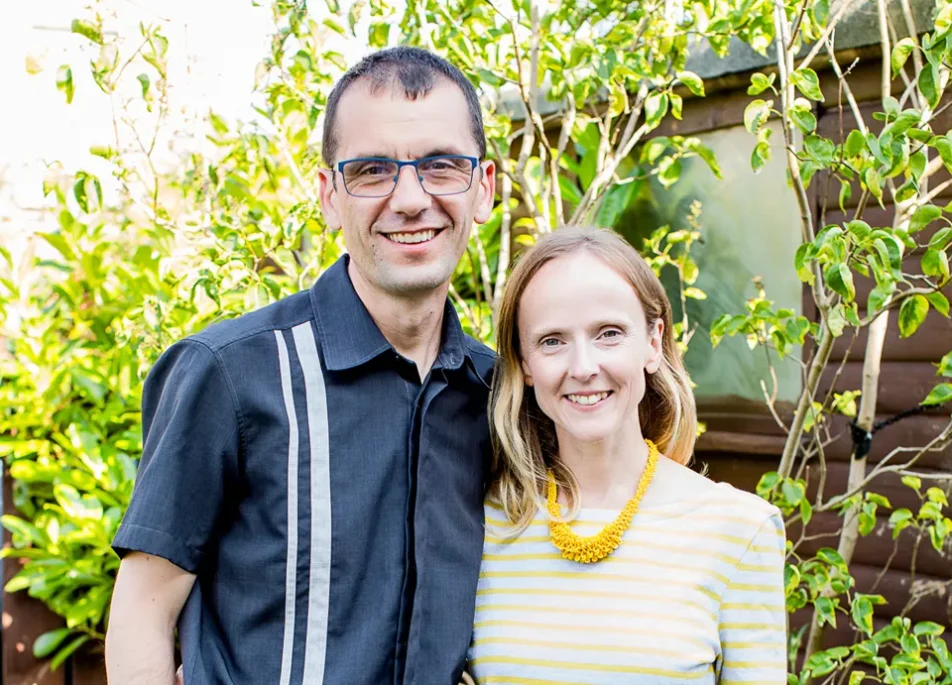It’s completely normal for siblings to bicker and squabble from time to time (or most of the time!), but when it comes to siblings in care, the trauma they have faced might make the tension and fighting harder to handle.
When you choose to become a foster parent, one of the different types of fostering available is fostering siblings. This can be an extremely rewarding experience, as you are providing the opportunity to keep siblings together. However, it can also come with challenges like trauma bonding with siblings.
But, what is a trauma bond between siblings? In this article, we’ll look at how to encourage sibling bonding and ways to teach young people how to bond with their siblings.

Why do siblings fight?
While arguing between siblings is a normal and natural part of growing up, when those fights become aggressive or start occurring more frequently, it can cause a lot of strain within the family.
One of the main reasons that siblings fight is competition for a parent’s attention. They need attention and they can do anything and everything in their power, both good and bad, to get it. Some of the main reasons siblings fight are:
- Attention
- Jealousy
- Resentment
- Annoyance
- Boredom
- Natural development
- Personality clash
When it comes to foster siblings in care, there are several reasons why arguments and fighting are commonplace. Maybe the younger sibling is used to being parented by the older sibling and now they feel abandoned as there is a new family structure. This can cause the child to lash out at both their sibling and their new foster family.
If you notice that the fighting seems like a form of bullying, then you might not be wrong. Children learn through observing and imitating, and therefore bullying could be a learned behaviour from their turbulent past.
It’s also common for foster children to feel threatened by birth children and the relationship they have with their parents. This can cause them to push their new family away as a defense mechanism, or use actions instead of words to express their feelings.
Both birth children and children in care can develop a fraught relationship during the placement, so understanding how to create positive bonds is crucial to break the behaviours that lead to fighting.
Sibling trauma bond in foster care
Sibling relationships are among the most significant bonds that a person can have over the course of their lifetime. While this bond can have a positive impact on all areas of a child’s life (including social, cognitive, and emotional development), there are siblings who have a shared traumatic past, which can sometimes form a trauma bond.
Trauma bonding is the formation of an unhealthy bond between a person living with abuse or neglect and the person causing it.
Siblings who share a traumatic past can form a sibling trauma bond, which is emotionally complex and can be difficult to break.
Trauma bonding between siblings can have an impact on the sibling’s emotions, ability to think, physiology, learning, impulse control, self-image, concentration, and relationships with others, including their siblings and foster siblings.
These complex emotions can cause the child to act out rather than talk, causing unrest, arguments, and fights, even when they enter a safe and secure foster home.
But sibling bonds are so important for children in foster care. They can provide a sense of stability and familiarity, and the security in knowing that someone they have known and been with all their life is going through the same journey with them.
Sibling bonds come with a sense of connection and belonging that many foster children haven’t felt before, and these bonds can help children learn cooperation and develop better social skills. This is why fostering siblings and providing support for children in foster care is crucial.
At FCA, we’ll work with you to understand how trauma can affect the siblings and children in our care, and train you in our therapeutic foster care approach to help them come through the other side.

How to get siblings to bond
While squabbling and arguing are a natural part of sibling life – and can teach important concepts like conflict resolution, forgiveness, and problem-solving – encouraging positive relationships between siblings can help create amazing relationships with solid bonds that last a lifetime.
You can play a key role in nurturing positive sibling bonds, helping to reduce sibling rivalry and conflict. This is important not just for now, but for the future too, as sibling relationships often play a major role in how we interact in other relationships with friends and partners later in life.
Here are some ways on how to help siblings bond.
- Try to figure out what’s causing the fighting. Is there a particular reason? Attention? Boredom? Tiredness? Hunger? If you can spot a pattern then you can try to address the issues.
- Don’t compare your children – birth or foster – as it can cause further rivalry and build resentment.
- Get them to work as a team for doing chores. Think of it like a team-building exercise where they have to work together to get a job done, rather than be pitted against each other.
- Make time for them both together and individually too – it’s important they also develop a sense of identity outside of the sibling relationship.
- Show them how to listen to each other. If they’re having an argument, teach them to take turns speaking and listening to each other to see things from each other’s point of view.
- Teach them the importance of respect by talking to each other using a kind tone of voice and not putting the other’s opinions down.
- Make time for family fun by choosing activities that can be enjoyed by everyone.
How to help siblings bond with your birth children
Coming into a new home can be scary and nerve-wracking for both foster children and birth children, but encouraging positive and strong relationships between them is essential for creating a happy, healthy, and safe home.
If you have your own birth children at home, here are some ways you can help them bond with the children in your care.
- Prepare your children before their foster siblings arrive by discussing expectations. Ask them to think about ways they can help make things friendly and welcoming and talk about how it might take some time before their foster siblings feel comfortable.
- Introduce your children slowly and don’t force them to become best friends right away. It can take time for them to get along and that’s totally fine.
- Make sure every child in the house has a safe, private space of their own to go to if they need it.
- Help new siblings bond over things they have in common to help them find common ground.
- Plan activities for your children to do together and create shared sibling experiences. This can help form a bond and be the start of a positive new relationship.
- Encourage your children to talk through their emotions but don’t force them to open up if they don’t want to. Give them the space they need but show them that you’re always there for them if and when they do want to share.
- Create new family traditions to establish a sense of belonging. This can be fun for your birth children and create a sense of belonging for their new foster siblings.
- Encourage them to help each other with jobs, games, homework, etc. This can help develop a nurturing relationship that teaches them teamwork skills and the importance of reciprocacy.
- Reward good behaviour such as when you see them getting along. Give them lots of praise and encouragement and show them that consistent good behaviour comes with positive affirmations and rewards.
Change the lives of siblings with FCA
When siblings come into foster care, they could very well be suffering from the effects of their traumatic past. This can come out in many ways, including sibling rivalry, fighting, and other challenging behaviour.
Now you understand how to strengthen the relationship between foster siblings, or foster children and your own children, you can help pave the way for a bright, happy, and positive future for everyone. Download our Guide to Complex Trauma to discover more about the effects of trauma in children, and how we can help.
With FCA, you will never be alone. We’re here for you 24/7 to help guide and support you throughout your fostering journey.

